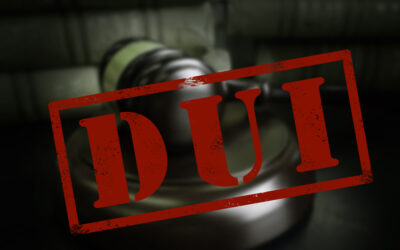
Understanding the differences between formal and informal probation in California is crucial for DUI offenders in California. While informal probation offers more flexibility and less oversight, formal probation provides a structured environment that may be beneficial for rehabilitation in more serious cases.
Our Los Angeles DUI lawyers can help you understand your probation requirements. Here is a brief introduction to the differences between formal and informal probation in California and what you can expect if you’re placed on probation.
The Basics of Probation in California
Probation for DUI charges in Los Angeles is an alternative to jail or prison that allows offenders to remain in their communities under certain conditions. It serves multiple purposes:
- To rehabilitate you
- To reduce the burden on the prison system
- To provide a way to rearrest you quickly if you violate public safety.
For DUI offenders, probation often includes specific conditions aimed at preventing future drunk driving incidents and addressing potential substance abuse issues. If you fulfill all of the conditions for the time of your probation, your probation ends.
Formal Probation in California
Formal probation, or supervised probation, assigns a probation officer to supervise you during your probation. This is reserved for more serious DUI cases like repeat offenses, very high blood alcohol concentrations, or cases with injuries or death.
Under formal probation, you can expect the following requirements:
- You’ll face probation for at least 3-5 years, and possibly longer
- You must check in regularly with your officer. This may be by phone, in-person, or both.
- You may have to regularly appear in court to review your probation and compliance
- You may need permission from your officer or the court to travel out of state or the country.
In addition, you will have to meet many probation conditions. The specifics will depend on your case. Some common DUI-related probation conditions include:
- Mandatory alcohol education programs
- Regular alcohol and drug testing
- Community service
- Attending rehab or support meetings
- Restrictions on your driving, such as ignition interlock devices
- Prohibition on entering places with alcohol
If you violate formal probation, you may be immediately arrested and made to serve your original sentence. This may put you in jail or prison. You will also face additional fines and penalties and may have to face a longer probation period with even stronger conditions once you get out.
Informal Probation in California
Informal probation, also called summary probation or court probation, is less restrictive and is often used for first-time offenders of DUI or those who have less severe offenses. A DUI lawyer may push to get you put on informal probation instead of formal probation or jail if you cannot avoid conviction.
Under informal probation, you can expect to face the following:
- A shorter probation period, usually 1-3 years.
- No probation officer. Instead, the court will oversee your compliance directly. You will need to make regular reports to them of your progress.
- Fewer appearances in court, and usually only if you violate your probation or miss a progress report.
- Less restrictions on your movement, association, and activities.
While this may seem much nicer, it is still a punishment. You may need to meet the same prohibition conditions as formal probation. It will depend on your charges and negotiations between your lawyer and the court.
If you violate informal probation, you may not face immediate arrest. However, you will need to explain yourself to the court. You will be called into a hearing to address the violation. Instead of making you serve your sentence, the court may change your prohibition conditions to be more restrictive or change you to formal probation.
Factors Influencing Formal vs. Informal Probation in California
The judge has significant latitude in determining which type of probation you receive. Several factors can influence whether a DUI offender receives formal or informal probation:
- Prior Offenses: Repeat DUI offenders are more likely to receive formal probation.
- Blood Alcohol Concentration (BAC): Higher BAC levels may lead to formal probation.
- Presence of Injuries: DUI cases involving injuries to others often result in formal probation.
- Aggravating Factors: Factors such as excessive speed, having a minor in the vehicle, or refusing a chemical test can increase the likelihood of formal probation.
The Role of Your Lawyer and Probation
Having experienced legal representation can significantly impact the type and terms of probation in a DUI case. A skilled DUI defense attorney can:
- Negotiate for informal probation instead of formal probation when possible.
- Advocate for more favorable probation conditions,
- Assist in preparing for probation violation hearings.
- Guide clients through the probation process to help them understand and meet their obligations.
Conclusion
For those facing DUI probation, knowing the differences between formal and informal probation in California can help them understand what they’ll face for the next few years. Seeking the guidance of a qualified DUI defense attorney is highly recommended during your probation.
They can provide personalized advice, work to secure the most favorable probation terms possible, and help you understand your requirements so you can stay compliant with the law and get through your probation period.
Remember, probation offers an opportunity for rehabilitation and a chance to avoid more severe penalties. You can learn more about probation directly from Los Angeles County by clicking the link in this sentence.







